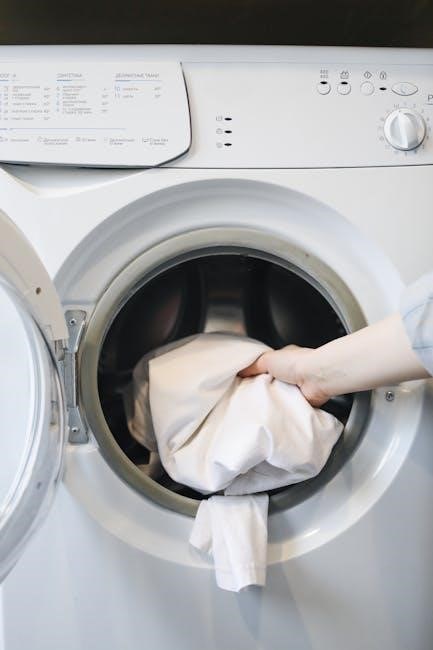ncaa compliance manual

The NCAA Compliance Manual is a comprehensive guide ensuring adherence to college athletics rules. It provides a framework for ethical standards, regulatory guidelines, and institutional responsibilities. Designed for student-athletes, coaches, and administrators, it promotes fair play and integrity. Regular updates reflect evolving legislation and best practices in collegiate sports governance.
Purpose and Scope of the Manual
The NCAA Compliance Manual serves as a foundational resource for institutions to navigate college athletics regulations. Its primary purpose is to ensure adherence to NCAA rules, promoting fairness and integrity across all levels of competition. The manual is designed to guide student-athletes, coaches, and administrators in understanding their responsibilities and maintaining compliance. It covers eligibility, recruiting, financial aid, and academic standards, while also addressing ethical conduct and reporting violations. Regular updates reflect changes in legislation and emerging challenges in collegiate sports. By providing clear guidelines, the manual helps institutions avoid penalties and foster a culture of accountability. Its scope extends to all NCAA divisions, offering tailored guidance to meet the unique needs of each level. This ensures a consistent and equitable framework for athletic programs nationwide.
Evolution of NCAA Compliance Regulations
NCAA compliance regulations have evolved significantly over the years to address emerging challenges in college athletics. Originally established to ensure fair competition, the rules have expanded to cover eligibility, recruiting, and academic integrity. Updates reflect changes in societal values, legal requirements, and technological advancements. For instance, Title IX regulations, enacted in 1972, mandated equal opportunities for women in athletics, leading to expanded compliance measures. Recent updates have focused on recruiting rules, amateurism standards, and student-athlete welfare. The manual is regularly revised to incorporate new legislation and best practices, ensuring it remains relevant and effective. This continuous evolution underscores the NCAA’s commitment to maintaining integrity and fairness in collegiate sports while adapting to modern complexities.

Key Regulations and Requirements
The NCAA Compliance Manual outlines essential regulations, including eligibility requirements, amateurism rules, financial aid guidelines, recruiting standards, and academic progress expectations for student-athletes and institutions.
Eligibility Requirements for Student-Athletes
Student-athletes must meet specific academic and amateurism standards to qualify for NCAA participation. They must complete core high school courses, maintain minimum GPA requirements, and pass standardized tests; Amateurism rules prohibit compensation for athletic performance or use of athletic fame for financial gain. Transfer students face additional eligibility criteria, including academic progress and residency requirements. Institutions must verify eligibility through NCAA-approved documentation and processes. Violations can result in ineligibility or penalties. The NCAA Compliance Manual provides detailed guidelines to ensure fair and consistent application of these rules across all member institutions. Proper documentation and adherence to these standards are critical for maintaining student-athlete eligibility and institutional compliance.
Financial Aid and Amateurism Rules
Financial aid for student-athletes must comply with NCAA regulations to ensure fair competition and maintain amateurism. Scholarships and aid are permissible if based on academic merit, financial need, or athletic ability, but must not exceed specified limits. Amateurism rules prohibit student-athletes from receiving compensation for athletic performance or using their fame for financial gain. Violations, such as accepting improper benefits, can lead to eligibility loss and institutional penalties. The NCAA Compliance Manual details allowable forms of aid and enforcement procedures to uphold these standards, ensuring integrity in collegiate athletics. Proper documentation and adherence to these rules are essential for maintaining compliance and avoiding repercussions.

Compliance Resources and Tools
The NCAA offers online resources, including the Legislative Services Database (LSDBi) and division-specific manuals, to assist institutions in maintaining regulatory compliance and understanding complex rules effectively.
NCAA Legislative Services Database (LSDBi)
The NCAA Legislative Services Database (LSDBi) is a critical resource for compliance officers, providing access to NCAA legislation, interpretations, and educational materials. Institutions can use LSDBi to research specific rules, understand regulatory changes, and ensure adherence to NCAA policies. The database is regularly updated to reflect new legislation and clarifications, making it an essential tool for maintaining compliance. It also offers a user-friendly interface for searching and filtering information, allowing users to quickly find relevant guidelines. By leveraging LSDBi, institutions can stay informed about NCAA rules and avoid potential violations. This resource is accessible online and is a cornerstone of the NCAA’s efforts to promote transparency and accountability in college athletics.
Division-Specific Manuals and Guides
Division-specific manuals and guides are tailored to address the unique needs and regulations of each NCAA division; These resources provide detailed information on rules, policies, and compliance requirements specific to Division I, II, or III. They are regularly updated to reflect legislative changes and are accessible online or through the NCAA Legislative Services Database (LSDBi). Institutions and compliance officers rely on these manuals to ensure adherence to divisional standards. The guides also outline expectations for eligibility, recruiting, and financial aid, helping member schools navigate complex regulations. By referencing these division-specific materials, institutions can maintain compliance and foster a culture of integrity in college athletics. These resources are indispensable for understanding and implementing NCAA rules effectively at every divisional level.

Academic and Educational Requirements
The NCAA Compliance Manual outlines academic standards for student-athletes, including eligibility, progress toward degree requirements, and access to academic support services ensuring educational success and compliance.
Progress Toward Degree Requirements
The NCAA mandates that student-athletes must make consistent academic progress toward their degrees. This includes completing a minimum number of credits each year and maintaining a specific GPA. Institutions are required to monitor and report students’ academic standings regularly. Failure to meet these requirements can result in loss of eligibility. The compliance manual provides detailed guidelines to ensure athletes stay on track academically, balancing sports and education effectively. These rules aim to uphold educational integrity and ensure student-athletes graduate with meaningful degrees. Compliance officers play a crucial role in enforcing these standards and assisting athletes in meeting their academic obligations. Regular checks and support systems are essential for maintaining eligibility and academic success.
Academic Support Services for Student-Athletes
The NCAA Compliance Manual emphasizes the importance of academic support services for student-athletes to ensure their success both on and off the field. Institutions are encouraged to provide resources such as tutoring, academic advising, and study hall programs. These services help student-athletes manage their time effectively, maintain eligibility, and progress toward their degrees. Additionally, schools may offer mentorship programs and access to academic support staff dedicated to assisting athletes. Monitoring tools, such as regular progress reports and GPA tracking, are also implemented to identify and support students at risk of falling behind. The NCAA promotes a holistic approach to education, ensuring that student-athletes have the tools and resources needed to achieve academic and athletic success.
Recruiting Rules and Guidelines
The NCAA Compliance Manual outlines recruiting rules to ensure fair and ethical practices. It defines recruiting terms, permissible contact periods, and restrictions on inducements to maintain integrity in college athletics.
General Recruiting Regulations
The NCAA Compliance Manual establishes clear guidelines for recruiting student-athletes, ensuring fairness and integrity. These regulations define permissible contact periods, communication methods, and evaluation practices. Institutions must adhere to rules governing official and unofficial visits, including limits on frequency and duration. Electronic communication, such as emails and social media, is subject to specific restrictions. Additionally, the manual outlines permissible recruiting materials and activities, while prohibiting inducements or impermissible benefits. These rules aim to protect student-athletes’ rights and prevent recruiting abuses. Compliance with these regulations is essential for maintaining eligibility and avoiding penalties. The NCAA enforces these standards to promote a level playing field across all member institutions.

Social Media and Electronic Communication Rules
The NCAA Compliance Manual outlines specific rules for social media and electronic communication in recruiting. Coaches and staff must adhere to guidelines regarding direct messaging, video calls, and content sharing. Electronic communication is restricted during certain periods to ensure fairness. Social media platforms like Twitter and Instagram are monitored for improper contact. Rules prohibit offers or inducements via direct messages. Student-athletes’ accounts may not be followed by coaches before specific deadlines. These regulations aim to maintain a level playing field and protect student-athletes from undue pressure. Violations can result in penalties, emphasizing the importance of compliance. The NCAA continuously updates these rules to align with evolving digital communication trends, ensuring ethical recruiting practices remain intact.
Reporting and Investigating Violations
The NCAA Compliance Manual outlines procedures for reporting violations, ensuring transparency and accountability. Institutions must investigate and address non-compliance promptly to maintain integrity and fairness in college athletics.
Procedures for Reporting NCAA Violations
The NCAA Compliance Manual details structured procedures for reporting violations to ensure accountability and fairness. Institutions must submit reports through the NCAA Legislative Services Database (LSDBi) or directly to the NCAA enforcement staff. All violations, whether identified internally or through external sources, must be documented thoroughly. Reports should include detailed information about the nature of the violation, individuals involved, and any corrective actions taken. Confidentiality is maintained to protect individuals’ privacy. Timely reporting is crucial, as delays may result in further complications. The NCAA encourages transparency and cooperation during investigations. Proper reporting ensures compliance with regulations and upholds the integrity of collegiate athletics. Strict adherence to these procedures is essential for maintaining fair competition and ethical standards across all NCAA divisions.
Consequences of Non-Compliance
Non-compliance with NCAA regulations can result in severe penalties for institutions, student-athletes, and staff. Consequences may include probation, fines, postseason bans, and loss of scholarships. Repeated violations can lead to more stringent sanctions, such as reduction in sports programs or even NCAA membership restrictions. Student-athletes found in violation may face eligibility loss, suspension, or permanent disqualification. Coaches and staff implicated in violations may face disciplinary actions, including termination or penalties imposed by the NCAA. Institutions must also address reputational damage, as non-compliance can harm recruiting, alumni relations, and public perception. The NCAA emphasizes corrective measures and cooperation during investigations to mitigate penalties. Timely resolution and adherence to compliance protocols are critical to minimizing long-term impacts on programs and individuals.



Leave a Reply
You must be logged in to post a comment.